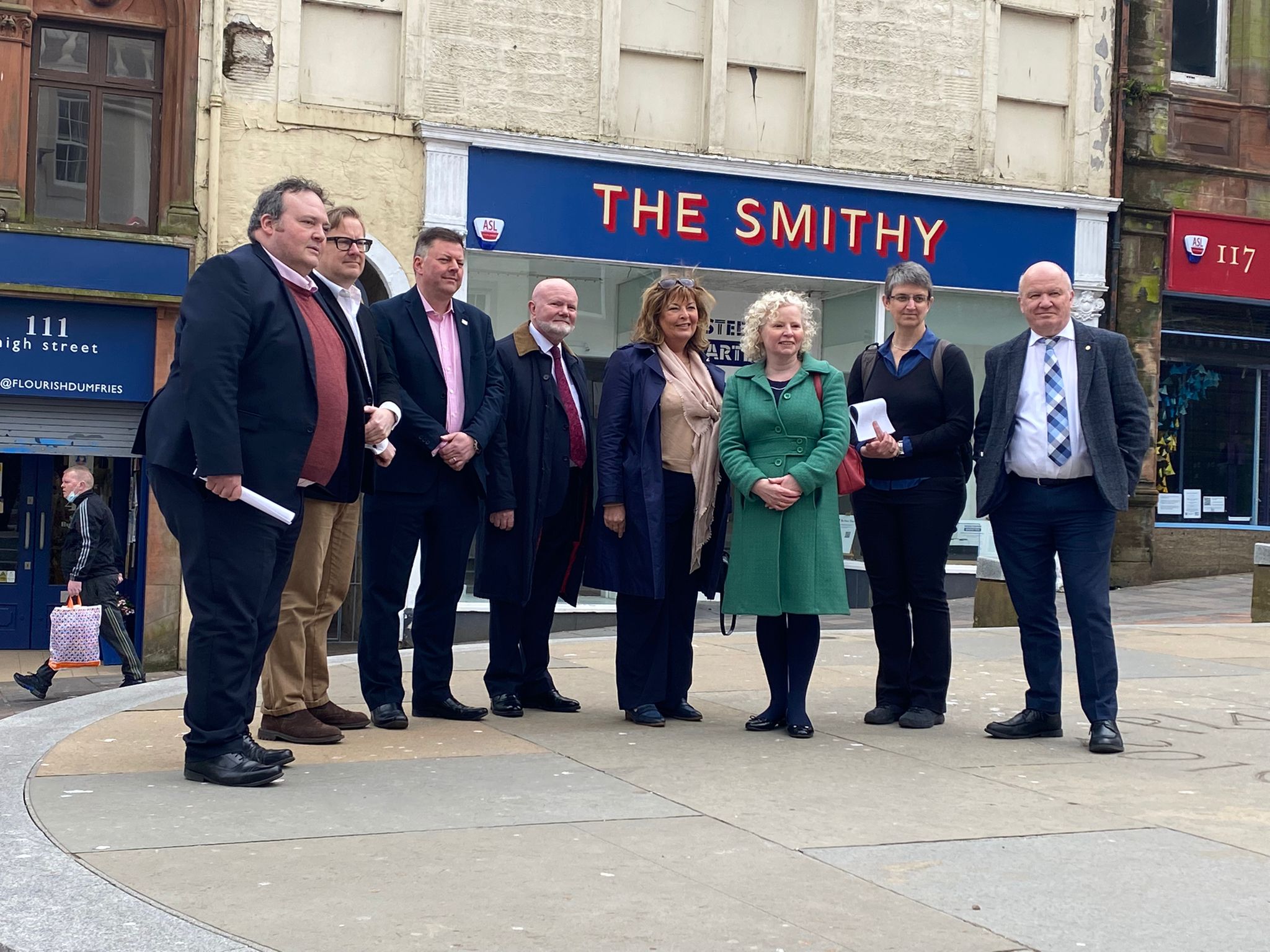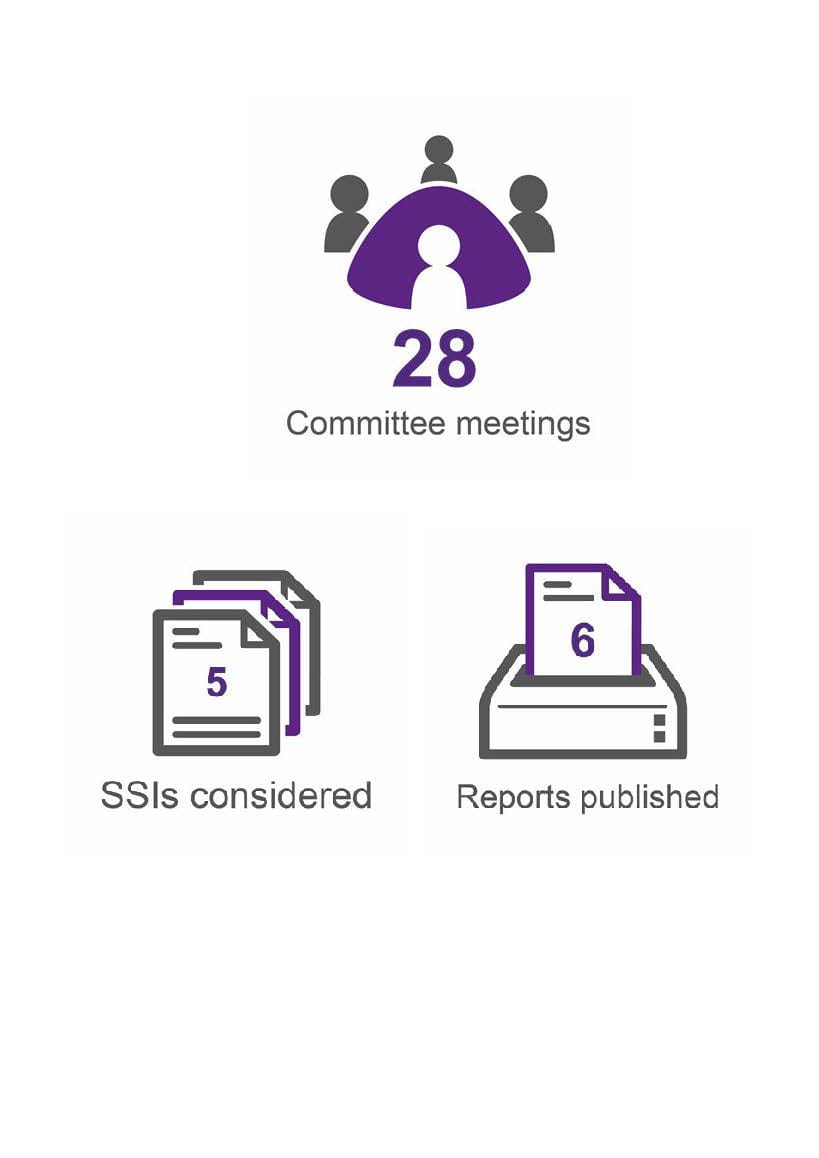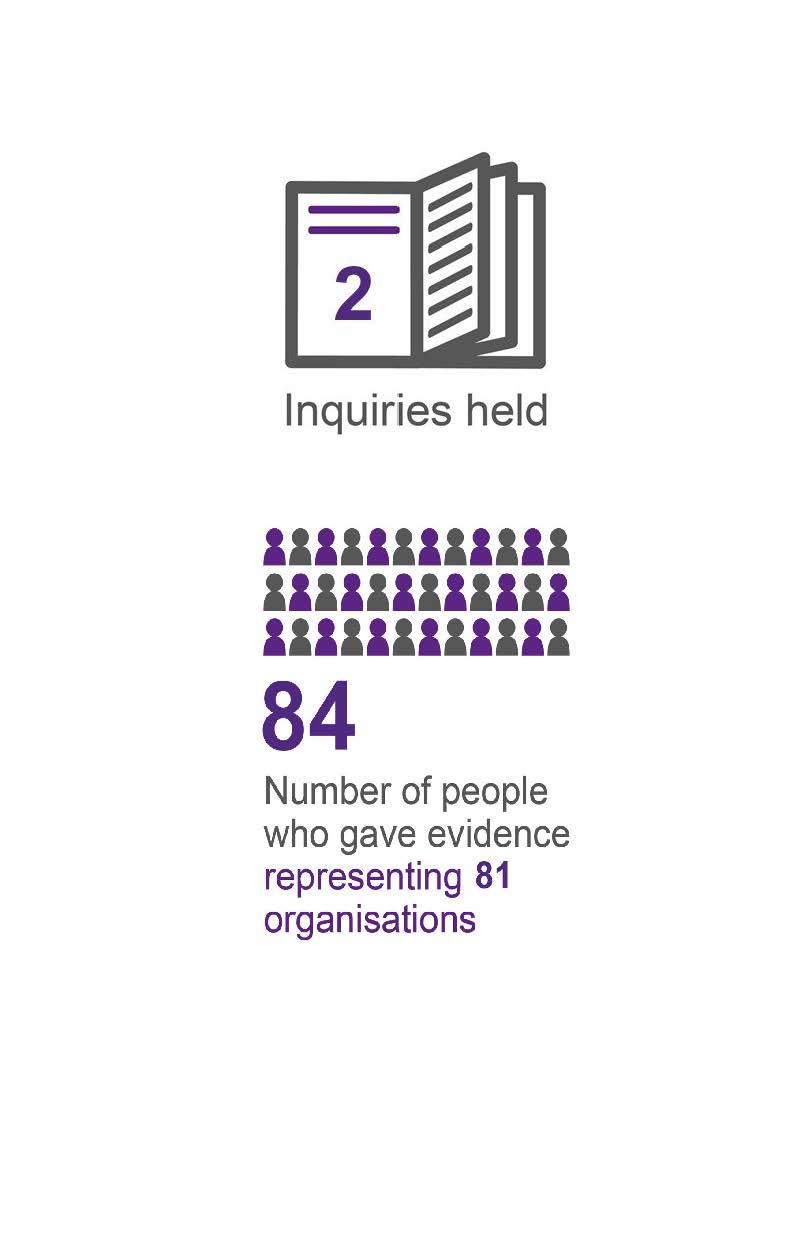Economy and Fair Work Committee
Annual Report of the Economy and Fair Work Committee for 2021/22
Introduction
This report covers the work of the Economy and Fair Work Committee during the parliamentary year from 13 May 2021 to 12 May 2022. The Committee was established in June 2021 with a remit to consider and report on matters relating to the economy falling within the responsibility of the Cabinet Secretary for Finance and the Economy.
Meetings
The Committee met 28 times during the reporting period, 3 meetings were held entirely in private, and 25 meetings included items in private. The reasons for taking business in private were to consider the Committee's work programme, to consider draft reports, or to consider evidence. During the reporting year the Committee heard from 84 witnesses, representing 81 businesses and organisations.
Committee Membership
Membership of the Committee was established on 17 June 2021. The current members of the Committee, along with details of their political party and membership dates are as follows—
Convener: Claire Baker (Lab) (17 June 2021 - )
Deputy Convener: Colin Beattie (SNP) (17 June 2021 - )
Alexander Burnett (Con) (17 June 2021 - )
Maggie Chapman (Green) (8 September 2021 - )
Jamie Halcro Johnston (Con) (17 June 2021 - )
Fiona Hyslop (SNP) (17 June 2021 - )
Gordon MacDonald (SNP) (17 June 2021 - )
Colin Smyth (Lab) (17 June 2021 - )
Michelle Thomson (SNP) (17 June 2021 - )
Previous member—
Lorna Slater (Green) (17 June 2021 - 8 September 2021)
Inquiries
During the period covered by this annual report, the Committee completed an inquiry into Scotland's supply chains. An inquiry into Scotland's town centres continues.
Scotland's Supply Chains
The Committee's considered how resilience could be built into Scotland's supply chains against a backdrop of UK and global shortages of materials and some foodstuffs, extended delivery times, higher prices and labour and skill shortages across key sectors, alongside peaks in demand.
The Committee's report published on 28 April 2022 highlighted a range of challenges facing supply chains. The Committee's key recommendations included improving the attractiveness of jobs and careers in the HGV sector, encouraging local production of raw materials required by the construction industry, and strengthening local supply chains to encourage businesses to use locally produced materials. The Committee called for the Scottish Government to show leadership in encouraging the wider use of innovative, more environmentally friendly alternative building materials through public procurement.
Town Centres and Retail
The Committee's ongoing inquiry is considering the new realities of retail and ecommerce in Scotland, impacts on town centres and what policies are needed to create living and resilient town centres. The Committee's call for views was launched in February 2022. We held a discussion event with a geographical spread of small businesses and community groups and commissioned external research to provide a range of case studies. Our oral evidence sessions continue and we expect to report with our recommendations after summer recess.
With the relaxation of pandemic restrictions, the Committee has been able to see, first-hand, some of the different approaches to town centre regeneration. In April, some members visited Midsteelple Quarter in Dumfries, held discussions with local business owners and community groups and toured the town centre. Similar visits are scheduled for Hamilton, Fraserburgh and Inverurie.

Other Work
In addition to inquiry work, the Committee held evidence sessions on Scotland's tourism and hospitality sectors, the support available to small and medium enterprises to transition to net zero, and the Scottish National Investment Bank (SNIB).
2022-23 Budget Scrutiny
The Committee held evidence sessions during September and October to consider how the Scottish Government's 2022-23 budget should best support a post-pandemic society and drive business recovery.
Our pre-budget letter to the Cabinet Secretary for Finance and the Economy on 4 November 2021, stated the Committee's view that front and central to the budget must be support to encourage investment, growth, prosperity and employment opportunities, whilst building resilience and protection against any future economic shocks. Our recommendations included a clear road-map for smaller businesses to get to net-zero, backed by practical support and non loan-based funding. We also called for continued support for a one-stop portal for business support to help navigate the cluttered landscape of support available and for the Scottish Government to commit to funding phase 2 of the Scottish Tourism Emergency Response Group’s (STERG) recovery plan.
The Cabinet Secretary responded to the Convener's letter on 15 December 2021 and gave evidence to the Committee on 19 January 2022.
Scotland's Tourism and Hospitality Sectors
The Committee held an evidence session in February 2022 with representatives of Scotland’s tourism and hospitality sectors and from Visit Scotland to assess how the tourism and hospitality sectors were emerging from pandemic restrictions.
The Committee wrote to the Cabinet Secretary reiterating its previous recommendation that the Scottish Government commit to funding the Phase 2 STERG recommendations. The Committee also called for funding for tourism and hospitality to be flexible, to enable it to be carried over to the next financial year if required. The Cabinet Secretary responded on 7 March 2022.
Scottish National Investment Bank
Following the resignation of the Scottish National Investment Bank's Chief Executive, the Committee held an evidence session with the Chair of Board of the Scottish National Investment Bank . Following details that later emerged in the media, the Committee wrote to the Chair expressing disappointment that these were not disclosed during the evidence session.
Transition to Net Zero for Small and Medium-Sized Enterprises (SMEs)
In October 2020, as part of the Committee's initial scene setting sessions, the Committee took evidence from businesses at different stages of the journey towards net zero. The session focussed on what SMEs would like to see from COP26 and the challenges they face including access to financial support. The Convener represented the Committee at the COP26 conference in Glasgow on 10 November 2021.
Registers of Scotland
Scrutiny of Registers of Scotland (RoS) falls within the Committee's remit. The Committee held an initial evidence session with the Keeper of the Registers of Scotland on 2 March 2022. Following this, the Committee agreed to receive monthly written updates on RoS activities and to hold quarterly evidence sessions with the Keeper.
Public petitions
PE1676 on The Land Registration etc. (Scotland) Act 2012 was lodged in 2017 and carried over from the last session of the Parliament. The Committee wrote to the Scottish Government and received an update on the issues raised. After consideration, the Committee agreed to close the petition but, in doing so, agreed to maintain a watching brief on RoS approach to handling complaints as part of its regular sessions with the Keeper of the Registers.
Legislation
No primary legislation was referred to the Committee during the period covered by this report.
Secondary Legislation
The Committee considered 5 Scottish Statutory Instruments—
2 affirmative; and
3 negative instruments.
The Committee's Scottish Statutory Instruments reports can be found on the Parliament's webpage.
UK Statutory Instrument Consent Notifications
The Committee considered three UK Statutory Instrument Consent Notifications during its reporting period—
Legislative Consent Memorandums
The Committee considered Legislative Consent memorandums (LCMs) for two UK Parliament Bills—
The Professional Qualifications Bill; and
The Subsidy Control Bill.
The Professional Qualifications Bill
The Professional Qualifications Bill set up a framework to allow issues around the mutual recognition of overseas qualifications to be dealt with via regulations, on a profession by profession basis.
The Scottish Government lodged an LCM in July 2021 and recommended that the Scottish Parliament not consent to the UK Government legislating. The Committee held an evidence session with the Minister on 29 September 2021 and published its report on 22 November.
Subsequently, amendments were made to the Bill that sought to address some of the issues raised. A supplementary LCM was lodged on 27 January, albeit the Scottish Government's position on consent was unchanged. The Committee held a second evidence session with the Minister on 2 February 2022 and published a further report on 9 February 2022.
Following further amendments to the Bill, a second supplementary LCM was lodged, noting that the Scottish Government's position on consent was unchanged. Due to time constraints, relevant Standing Orders rules were suspended, removing the need for the Committee to publish a further report.
The Subsidy Control Bill
Following the UK's exit from the EU, the Subsidy Control Bill created a domestic subsidy control regime for the UK.
The Scottish Government lodged an LCM on 25 October 2021, recommending that the Scottish Parliament withhold its consent. The Committee sought written views in November 2021, held an evidence session on 12 January and took evidence from the Minister for Business, Trade, Tourism and Europe on 19 January.
The Committee published its report on 9 February 2022.
Engagement and equalities
The Committee used a variety of methods to gather information including informal virtual round table meetings and formal evidence sessions. Virtual meetings made it easier to engage with people further afield or who were less able or willing to travel to Edinburgh to give evidence in person face to face, in a more formal setting.
For both inquiries, the Committee sought input via the Citizens Space platform. Responses were published and helped to inform evidence sessions and final reports.
Infographics
Meetings held, subordinate legislation considered and reports published.

